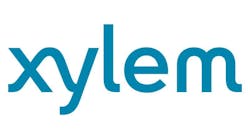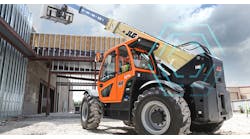The need for qualified service technicians is well documented in the construction and rental industries. Almost every equipment dealer has machinery that needs service or repair. The situation is so desperate that it has been reported that a multi-branch dealer in Texas currently has a need for more than 100 technicians. While the shortage of service technicians is readily identifiable, the solution to the problem isn't as easy as it may seem. That is, maybe, until now.
The creation of the Fabtech Education Center in Oshkosh, Wis., is a unique example of how cooperation between an equipment dealer and an educational institution can create a partnership that not only works toward solving an industry problem, but also helps young people discover a rewarding career path. The Center was established by FABCO Equipment and Fox Valley Technical College to train students on how to service construction equipment and to give them the opportunity for a good career upon completing the program.
FABCO is a Caterpillar equipment and engine dealer that also offers a wide variety of rental equipment including aerial work platforms manufactured by JLG Industries, an Oshkosh Corp. company. FABCO has 23 facilities in Wisconsin and the upper peninsula of Michigan. The company employs nearly 600 people, 250 of which are skilled service technicians. With normal personnel turnover and company growth, FABCO needs to hire 20 to 25 qualified service technicians annually. Because conventional recruiting was not generating enough qualified candidates, FABCO and FVTC created Fabtech Education Center to develop entry-level technicians.
To acquaint potential applicants with the Fabtech program, representatives from FABCO's human resources department contact high school guidance counselors and speak to students at high schools with a technical orientation curriculum. They also participate in events such as the World Dairy Exposition in Madison, Wis., where young people with a “hands-on/get it done” aptitude are involved.
Enrollment in the Fabtech program entails an application form, transcripts and personal interview at Fabtech with the applicant and parents. This gives the school the opportunity to demonstrate how a service technician career is no longer a “grease monkey” kind of job but a highly sophisticated, well-paying occupation using the latest in technology. It also insures the school that there is a commitment from the family and helps avoid the potential of a dropout due to the lack of family support.
To help get the program off the ground and give students an opportunity to work on current equipment, JLG provided three aerial work platforms that represent a cross section of its aerial product line. They include an electric-powered scissorlift, a gasoline-powered rough-terrain scissorlift and a telescoping boomlift with Caterpillar diesel power. JLG also provided the specialized diagnostic tools and equipment necessary to service its aerials along with the relevant service, maintenance and repair manuals.
Fabtech also has an agreement with a manufacturer of hand tools that allows the students to use the tools during the training program and purchase them at substantial savings upon graduation. The arrangement is forward thinking and assures that the students won't abuse the tools while they are learning since most will buy them for use in their new career.
The school started with its first class of 25 students in the fall of 2007. All of the students were recruited from Wisconsin and Michigan's upper peninsula and will be given the opportunity for employment with FABCO upon successful completion of the program. Because the students are from the areas where FABCO has its branches, taking a job with the company usually doesn't involve significant relocation and could even be near their hometowns, an advantage for both the students and FABCO.
The Fabtech training program class schedule and fee structure is designed around the needs of the student. There is no summer break so they can finish their studies and join the workforce immediately. Classes run from 7:30 a.m. to 4:00 p.m. Monday through Thursday. The four-day class schedule provides an opportunity for the student to hold a part-time weekend job while in school.
Mornings are frequently devoted to classroom studies with afternoons or the entire day in the school's lab where students have hands-on experience diagnosing and repairing the equipment. The lab resembles an actual FABCO service facility and has Caterpillar equipment and engines along with the JLG aerials and other equipment for the students to work on.
Tuition is economically priced and low-cost dormitory housing and meals are available through a special arrangement with nearby University of Wisconsin - Oshkosh. To further reduce costs, FABCO provides uniforms and gives each student a laptop computer to use while they are enrolled in the program. As one student said, “Having a computer and learning to use it to access the manufacturers' websites really helps us. Even with a comprehensive training program like this, it's impossible to know everything about equipment repair, so it's mandatory to know where you can find the information.”
Instruction is under the supervision of Joe Berhausen, a 23-year veteran of the equipment industry. Berhausen previously had been an instructor in diesel engines and welding at the college.
Four service technician career tracks are offered at the school: rental, engine, construction equipment and electric power generation/marine engine. A certificate of completion is earned upon successful completion of each career track. The program is accredited by the Wisconsin Technical College System and certificate series credits can also be applied toward an associate's degree if a student decides to continue his or her education.
Because safety is such a priority both in the school and in the workplace, one of the first topics covered when classes started in August, was the safe operation of equipment. Garry Myers, FABCO technical support specialist and an aerial work platform Train the Trainer graduate, acted as a guest lecturer to train students in the safe operation of the JLG aerial equipment before they were allowed to operate the equipment. Following completion of training, students received a wallet card certifying their training and a certificate of training was placed in their school file as a reference for future employment.
Another early guest lecturer was Kevin Dye, mid-American product support specialist for the JLG/Caterpillar Alliance. Dye reviewed how to use the JLG-specific hand-held engine analyzer diagnostic tool. He also covered some of the primary maintenance topics for aerials such as limit switches, cable adjustment for the boom raise and lower functions, wear pad thickness, correct fluid levels and battery maintenance for electric-powered scissorlifts.
Looking back over the first months of the new Fabtech program, Berhausen summed up the outlook for the school and the support provided by JLG Industries saying, “It's an outstanding relationship. Thanks to JLG's help, our students are going to be well prepared to meet the service needs of the construction industry. It is because of the progressive thinking of companies like FABCO and JLG that we're looking forward to the successful training of knowledgeable technicians for many years to come.”
William Hindman is president of Industrial Marketing Services, Elk Grove Village, Ill.





